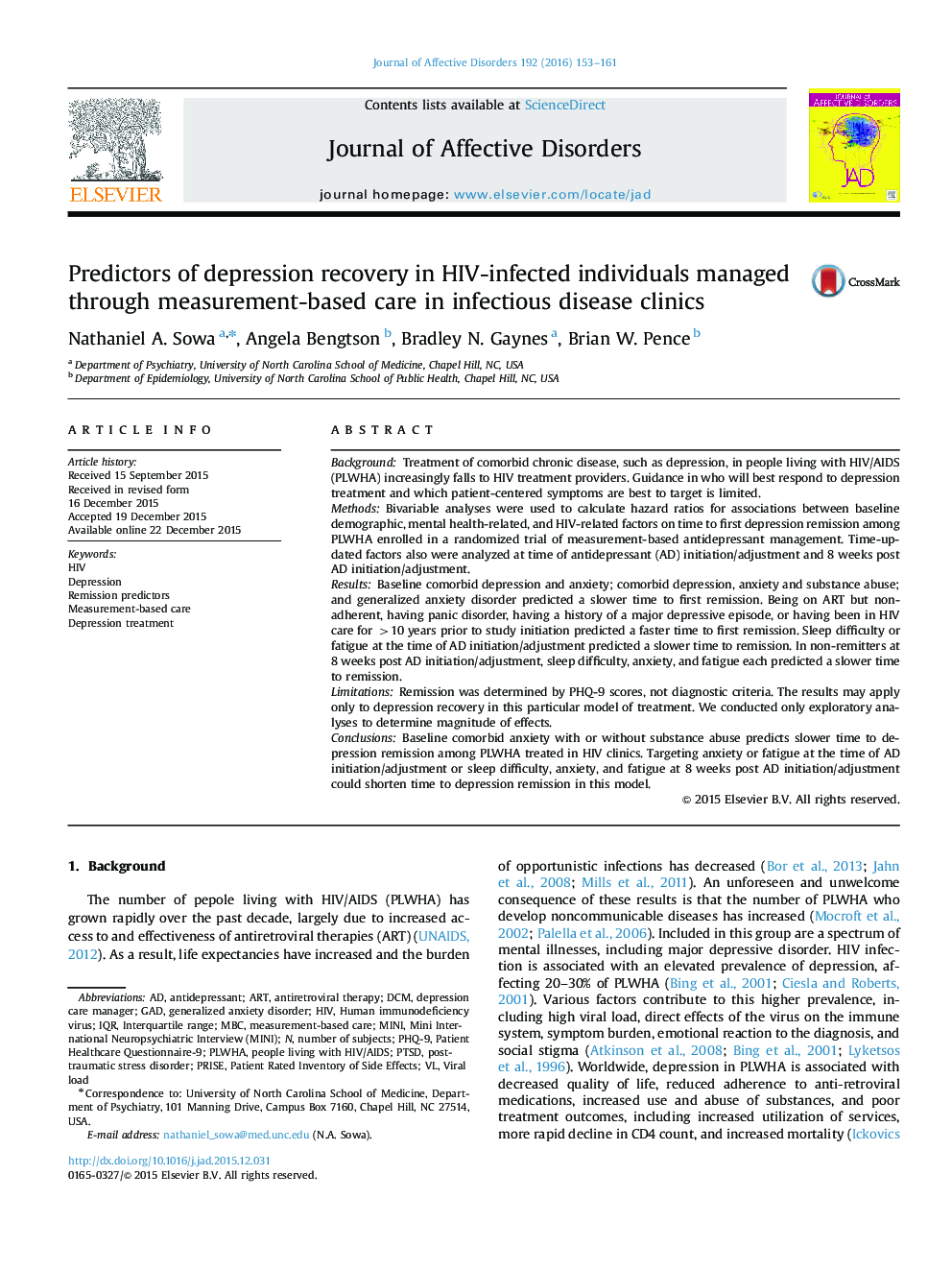| کد مقاله | کد نشریه | سال انتشار | مقاله انگلیسی | نسخه تمام متن |
|---|---|---|---|---|
| 6230621 | 1608133 | 2016 | 9 صفحه PDF | دانلود رایگان |

- Identified predictors of time to depression remission in HIV-infected individuals.
- Comorbid anxiety predicts longer time to depression remission.
- Sleep difficulty at the time of antidepressant initiation predicts slower time to remission.
- Sleep difficulty, anxiety, or fatigue 8 weeks posttreatment predict slow recovery.
- This information could guide HIV-providers in depression treatment decisions.
BackgroundTreatment of comorbid chronic disease, such as depression, in people living with HIV/AIDS (PLWHA) increasingly falls to HIV treatment providers. Guidance in who will best respond to depression treatment and which patient-centered symptoms are best to target is limited.MethodsBivariable analyses were used to calculate hazard ratios for associations between baseline demographic, mental health-related, and HIV-related factors on time to first depression remission among PLWHA enrolled in a randomized trial of measurement-based antidepressant management. Time-updated factors also were analyzed at time of antidepressant (AD) initiation/adjustment and 8 weeks post AD initiation/adjustment.ResultsBaseline comorbid depression and anxiety; comorbid depression, anxiety and substance abuse; and generalized anxiety disorder predicted a slower time to first remission. Being on ART but non-adherent, having panic disorder, having a history of a major depressive episode, or having been in HIV care for >10 years prior to study initiation predicted a faster time to first remission. Sleep difficulty or fatigue at the time of AD initiation/adjustment predicted a slower time to remission. In non-remitters at 8 weeks post AD initiation/adjustment, sleep difficulty, anxiety, and fatigue each predicted a slower time to remission.LimitationsRemission was determined by PHQ-9 scores, not diagnostic criteria. The results may apply only to depression recovery in this particular model of treatment. We conducted only exploratory analyses to determine magnitude of effects.ConclusionsBaseline comorbid anxiety with or without substance abuse predicts slower time to depression remission among PLWHA treated in HIV clinics. Targeting anxiety or fatigue at the time of AD initiation/adjustment or sleep difficulty, anxiety, and fatigue at 8 weeks post AD initiation/adjustment could shorten time to depression remission in this model.
Journal: Journal of Affective Disorders - Volume 192, 1 March 2016, Pages 153-161